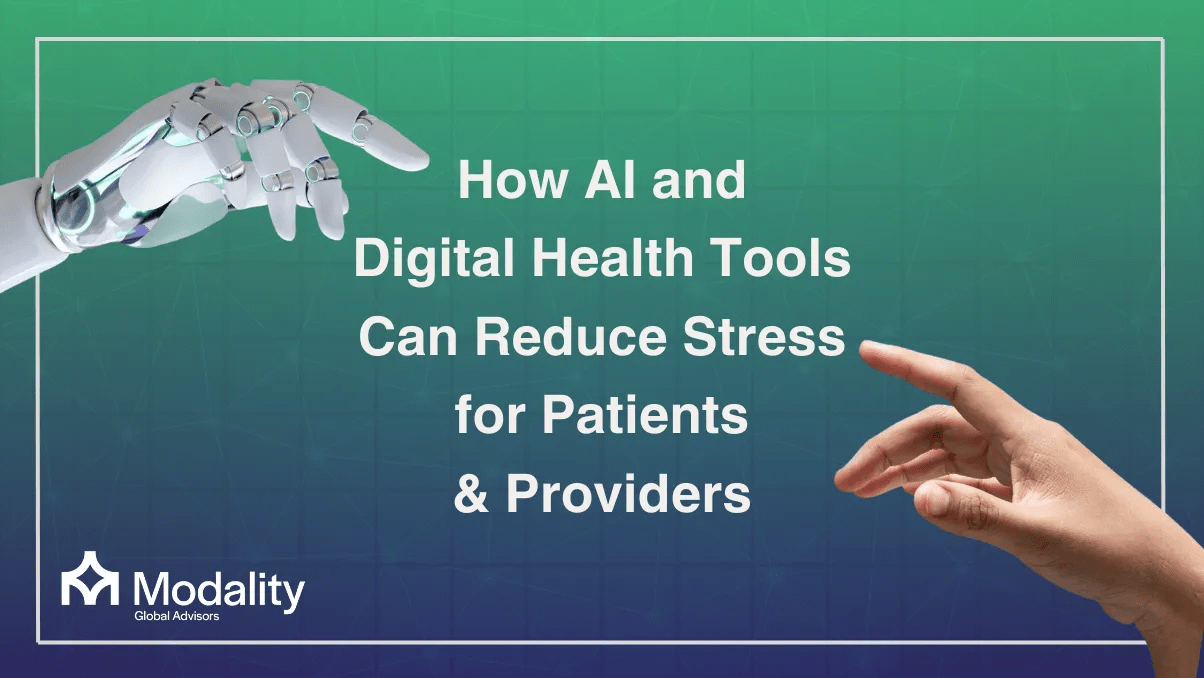How AI and Digital Health Tools Can Reduce Stress for Patients and Providers
Less Stress, Better Care: How AI & Digital Health Are Calming the Chaos
Long waits, inbox overload, and clunky handoffs fuel anxiety for patients and burnout for clinicians. The good news: AI and digital health tools are turning fragmented experiences into coordinated, human-centered care—reducing stress, improving access, and strengthening communication.
Digital Therapy & Virtual Care: Easing Patient Stress
- On-demand answers: Symptom checkers, virtual assistants, and remote monitoring give patients clarity between visits.
- Telehealth that fits life: Video visits cut travel and waiting-room time; patients report strong satisfaction with virtual care.
- Continuous support: Mood tracking, CBT apps, and coaching nudge healthy behaviors and flag concerns early.
Relieving Clinician Burnout with AI
Smarter Documentation
Ambient AI scribes capture notes in real time—often halving EHR time and giving evenings back.
Inbox Co-Pilots
Generative AI drafts message replies and routes tasks, shrinking the 1.5 hours/day spent on inbox work.
Cleaner Revenue Cycles
AI-assisted coding and eligibility reduce denials and rework, stabilizing cash flow and reducing stress.
From Point Tools to Outcomes: How MGA Helps
- AI-Driven Workflow Optimization: Streamline intake, documentation, and RCM—cut denials, increase yield, and protect clinician time.
- Telehealth & RPM Strategy: Build scalable virtual care for behavioral health and chronic disease, expanding access in underserved regions.
- Change Management & Training: Equip teams to use AI safely and effectively with governance, guardrails, and hands-on adoption support.
- Personalized Analytics: Risk models and dashboards that turn data into timely actions—doubling engagement and improving outcomes.
A Calmer, More Human Health System
AI isn’t replacing care—it’s removing friction so people can connect. When digital tools handle the busywork, patients feel informed and clinicians can practice at the top of their license. The result: faster answers, safer decisions, and a kinder experience for everyone.
Download our Implementation Checklist
Sources: AMA telehealth satisfaction surveys; global mental health prevalence estimates; industry reports on AI scribes, revenue cycle automation, and healthcare AI growth.






